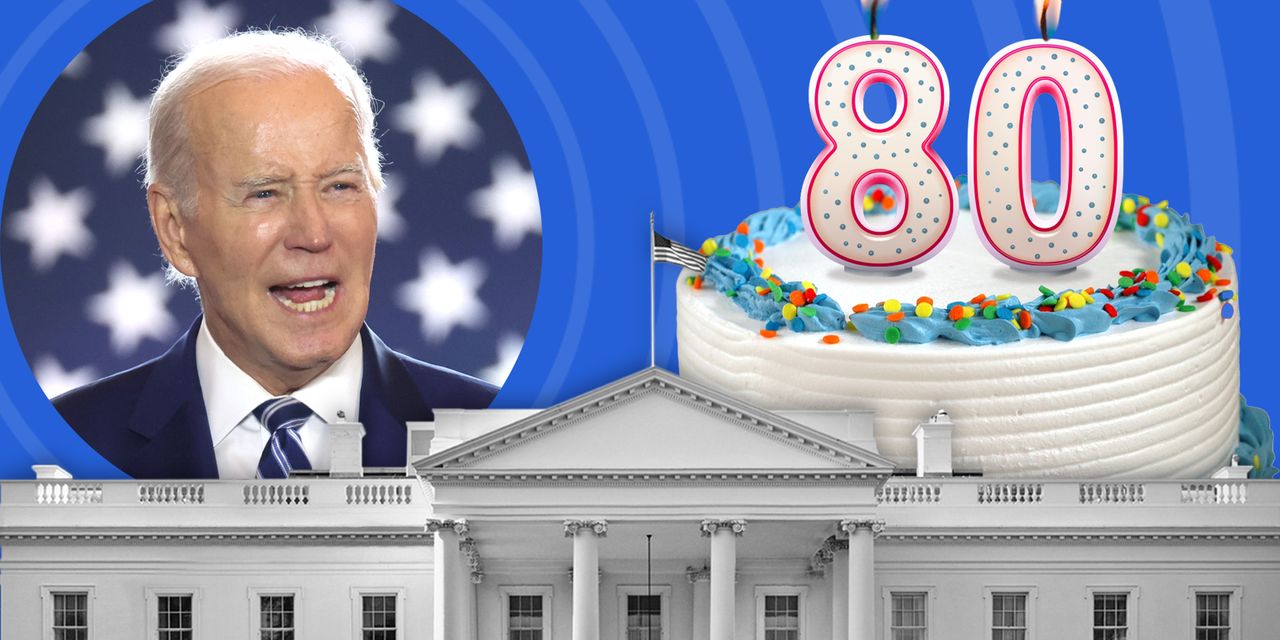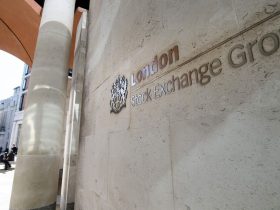As the 2024 race for the White House gathers steam, one topic that just won’t go away is President Joe Biden’s age.
It comes up whenever the 80-year-old president makes a mistake such as saying “Iraq” when he means to say “Ukraine,” as occurred twice in 24 hours in late June, or when he takes a tumble, such as his trip over a sandbag at the Air Force Academy’s commencement on June 1. Biden later joked that he “got sandbagged.”
The president and allies have acknowledged that voters are concerned about his age. An August poll found 77% of Americans now say Biden is too old for a second term. He would be 86 at the end of that term and already ranks as the oldest commander-in-chief ever, topping Ronald Reagan, who was 77 as he exited the White House, and Donald Trump, who was 74 as he left office.
Biden has said he respects voters for “taking a hard look” at him and his age, adding that he took a hard look himself before deciding to run. Former Democratic presidential nominee Hillary Clinton, 75, recently said of Biden that “his age is an issue, and people have every right to consider it,” but then talked up the president’s record, pointing to the strong job market and legislation that boosts the U.S. semiconductor industry
SMH,
SOXX,
While Democrats are mostly closing ranks behind Biden in the 2024 contest, author and activist Marianne Williamson, 70, is among his longshot challengers for the party’s presidential nomination, and she has expressed some qualms about his age. “I can only say if I were 80, I wouldn’t be running, but you know, I will not take potshots at the president, and I think that veers into potshots,” Williamson said in a question-and-answer session with MarketWatch.
Meanwhile, Biden’s Republican critics have offered sharply worded critiques about the incumbent over his age. “Part of the job of the president of the United States is to inspire confidence and to project power, and he’s not doing that. He can’t do that. He’s too old to do that, and I just think it’s a shame,” said Rep. Ronny Jackson of Texas in a Fox News interview.
Republican presidential candidate Nikki Haley, 51, has called for “mandatory mental-competency tests for politicians over 75 years old,” in a gambit targeting both Biden and Trump. Her stump speeches have included this line: “America is not past our prime. It’s just that our politicians are past theirs.” She has gone so far as to say it’s not likely that Biden “would make it until 86 years old.”
‘Zeroing in on the wrong thing’
For Jay Olshansky, the hubbub over Biden’s age feels familiar. He’s a professor in the School of Public Health at the University of Illinois at Chicago and has researched presidents and aging.
“I’ve done interviews every four years on all the presidential candidates, because they keep getting older and older,” Olshansky told MarketWatch. “I remember when John McCain was running for president, and he had been diagnosed with cancer, and the same questions were coming up. Eventually I told everyone, ‘Look, his mother’s still alive. Leave him alone.’ “
McCain was 72 and a three-time melanoma survivor when he lost in the 2008 presidential election to Barack Obama, 25 years his junior. The longtime Republican senator from Arizona died in 2018 at the age of 81 from brain cancer while still serving in the Senate. His mother died in 2020 at the age of 108.
“I understand why it is that age is raised at all. You cannot sugarcoat aging. Things go wrong as we get older. The older you are, the higher the risk,” Olshansky said.
“There’s no question that Biden’s risk is higher … because he is the oldest president we have had. But is that a reason not to hire somebody to be president? My answer is no. There’s a lot of variability in the aging process.”
Olshansky makes the point that presidents tend to be what he describes as “super-agers.” They typically submit to annual, in-depth physicals, and the results are generally made public.
“ ‘What [pundits] failed to appreciate was the fact that he was on his bike to begin with.’ ”
“There’s a history among U.S. presidents of being exceptionally long-lived, in spite of some views to the contrary that they age more rapidly while they’re in office — that’s just not true,” said the UIC professor, who co-founded a company, Lapetus Health Intelligence Solutions, that estimates lifespans for the insurance industry
KIE,
“They tend to live longer because of the social determinants of health: They’re highly educated, they’re wealthier, they have access to the best medical care, and they make good decisions, most of the time, with regard to their own health.”
When Biden attracted attention in June 2022 for falling while on a bike ride in Rehoboth Beach, Del., Olshansky said pundits were “zeroing in on the wrong thing.”
“What they failed to appreciate was the fact that he was on his bike to begin with,” he said. “When you’re at that age and you’re on a bicycle, it’s very unusual and sort of a classic sign that you see among subgroups of the population that are super-agers.”
Olshansky said concerns about a presidential contender’s age tend to be “politicized,” noting that Trump, 77, raised eyebrows in 2020 with an awkwardly cautious walk down a ramp at West Point’s commencement.
He also noted that presidents have dealt with disabilities, referring to the effects of polio that afflicted Franklin D. Roosevelt (though some researchers said in 2003 that FDR might not have been stricken by polio, but rather a different illness.)
“The primary decision-making factor should be whether or not somebody has policies that we’re interested in promoting, and whether or not the person is capable of carrying out the duties of president,” the UIC expert said. “That applies to somebody who’s 40 years old, just as it applies to somebody who’s 80 years old. So I would use the same criteria regardless of how old they are.”
“ ‘[A U.S. president] must be of sound mind, so it’s legitimate to probe and prod on that matter.’ ”
Olshansky and other experts on aging issued a report in September 2020, as Biden ran against Trump, saying that they had concluded that “chronological age is not a relevant factor for either candidate running for president.” He said they plan to do the same analysis again next year once the field narrows to two candidates, and their conclusion will be based on the latest medical records.
‘Legitimate to probe and prod’ on Biden’s age
Given what the job of president involves, thinking about Biden’s age is appropriate, according to Larry Sabato, founder and director of the University of Virginia’s Center for Politics.
“The U.S. president is arguably the most powerful person in the world, and controls hundreds of nuclear weapons. He must be of sound mind, so it’s legitimate to probe and prod on that matter,” Sabato told MarketWatch in an email.
“But let’s also remember that Biden arguably has the longest and deepest experience in the modern age, maybe ever. Experience matters enormously.”
The University of Virginia expert said he expects age to be “frequently and prominently mentioned” throughout the 2024 presidential race, though it will be a lesser issue if Trump becomes the Republican nominee, since the 45th president is only four years younger than the 46th.
Sabato added that discussions about Biden’s age have veered out of bounds at times, and he expects that will continue.
“Some of the speculation about Biden has been ghoulish,” he said. “Who would have thought that the youngest elected president, John F. Kennedy, would only serve less than three years and die by an assassin’s bullet at age 43? So this subject must be kept within reasonable bounds and discussed with humility. Fat chance of that!”
Now read: Here are the Republicans running for president in 2024
Read the full article here









Leave a Reply